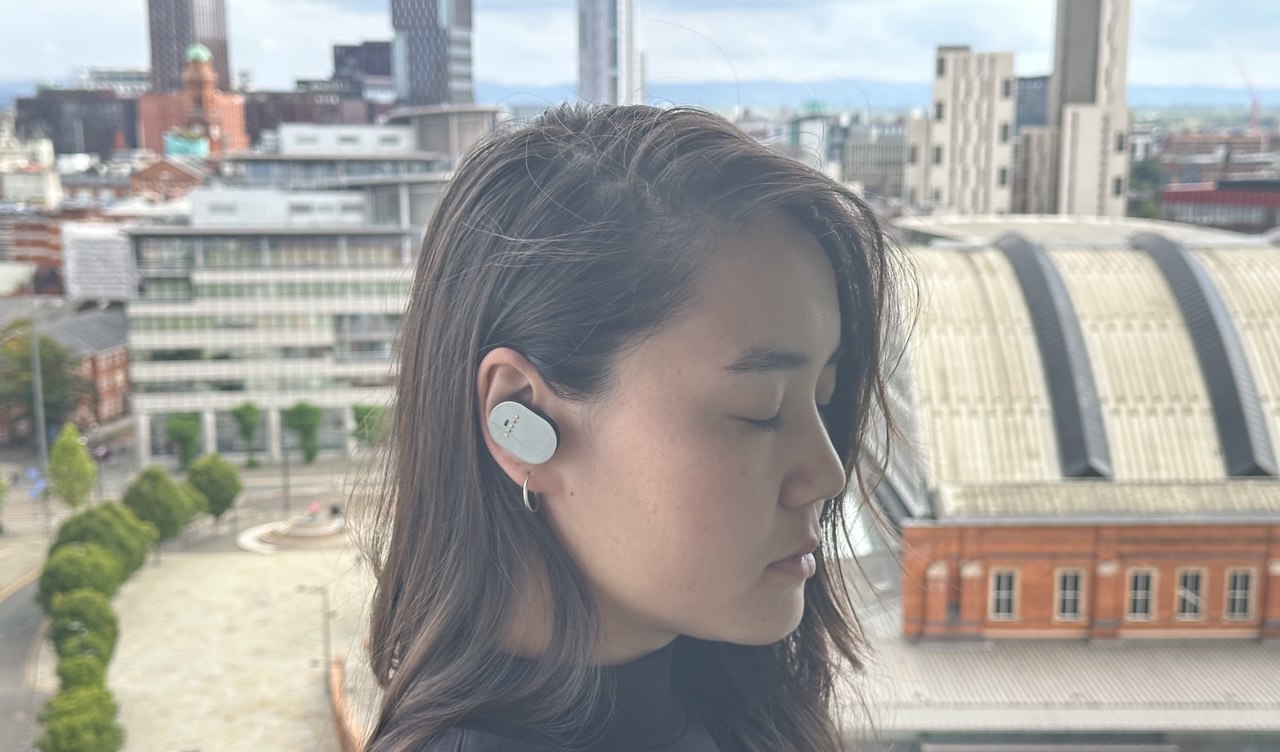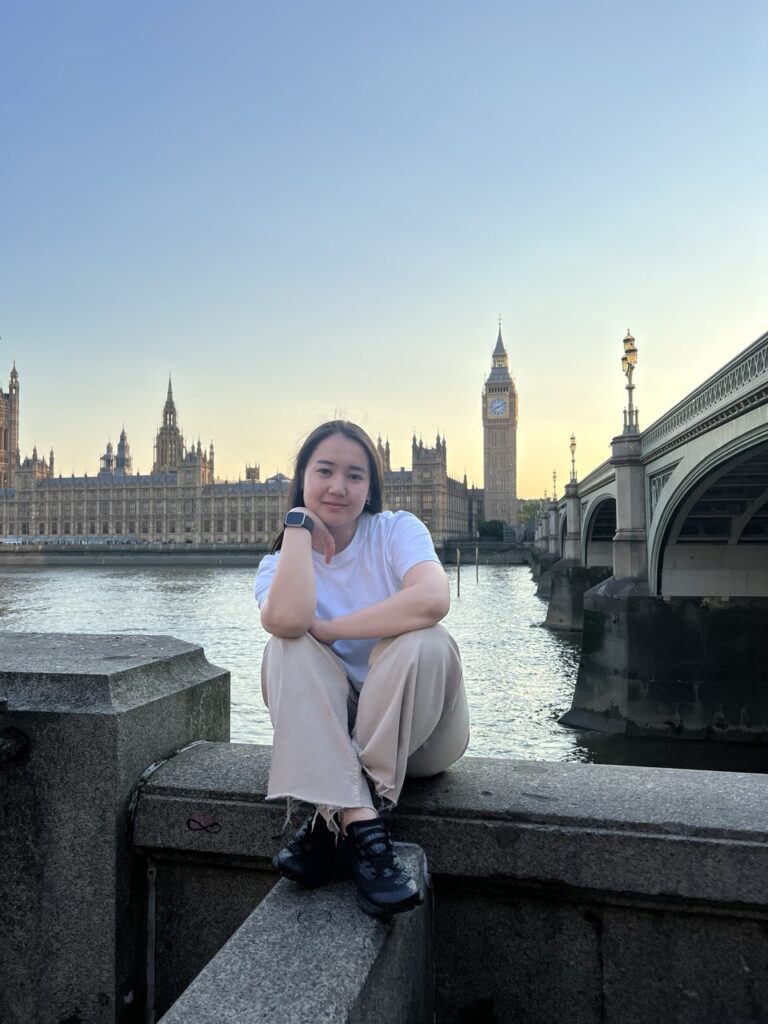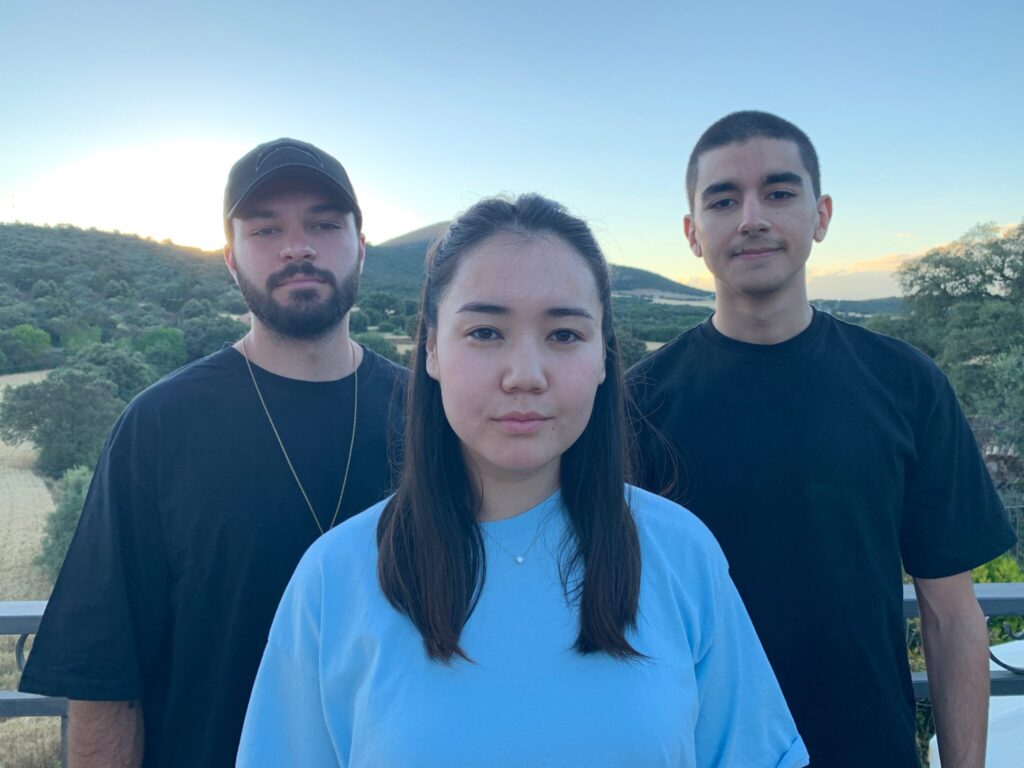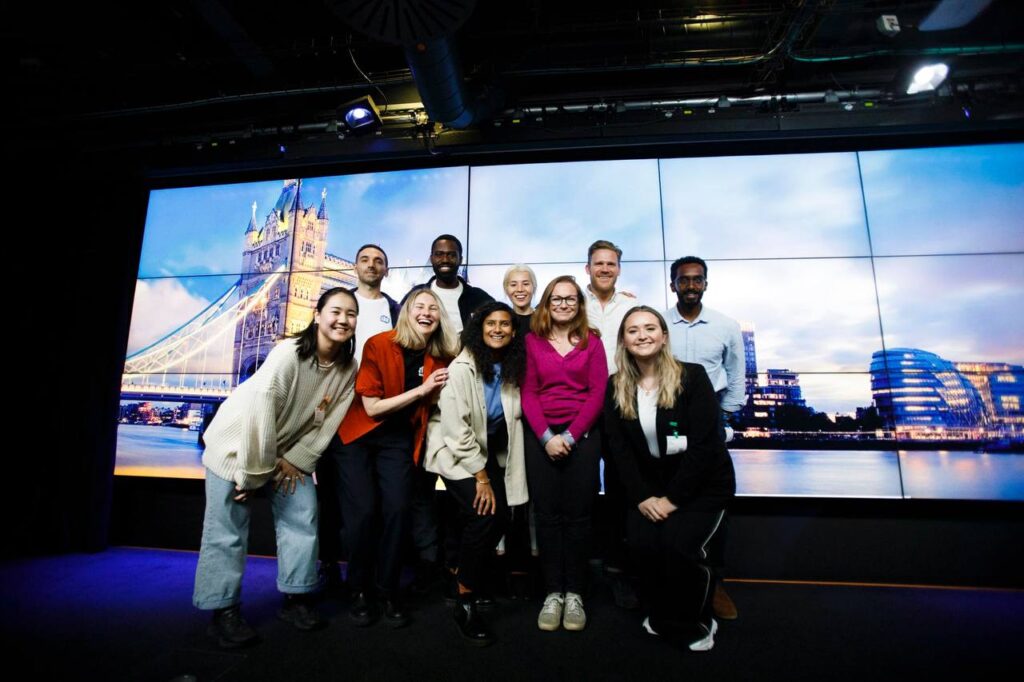How Alina Ijigilika from Kyrgyzstan founded Newnorm — modular headphones that attracted £100 000 in investment

Alina Ijigilika is the founder of a startup from Kyrgyzstan. Alongside her team, she has developed modular headphones that can transform into speakers. The project has already raised £100 000 in investment and has gone through acceleration programs from Google and Tech Nation.
About myself
I am originally from Kyrgyzstan. I studied and worked in seven different countries over many years. Currently, I am running my startup, Newnorm, based in the UK. At the same time, I serve as a mentor in British accelerators, supporting startup teams at various stages of growth and development.
Before founding the startup, I worked across various industries, predominantly in business departments of industrial companies. This experience allowed me to gain a deeper understanding of how the real economy functions and how technology is integrated into traditional sectors.
How it all started
More than five years ago, my co-founder and I began working on the startup. It began with a simple conversation — I had shared my personal story: how I had cracked my phone screen and could not find a replacement in any workshop in the region. I faced a choice: order a replacement part for the price of a new phone or simply throw away the device and buy a new one. It deeply affected me: the phone still worked perfectly, and the only issue was a broken screen.
Around the same time, my future co-founder noticed that his new headphones produced loud sound when hanging around his neck. He thought: “What if headphones could function as speakers?” As an electronics engineer, he realized that with modern wireless technology, it was feasible. We discussed the challenges and began research. We discovered the problem was not just design, but an entire system where devices are made to be short-lived.
It is not beneficial for manufacturers to create universal and repairable devices. It is easier to sell products separately and frequently release new models with minor tweaks. Planned obsolescence is employed. All to encourage repeat purchases.
Meanwhile, marketing turns gadgets into objects of desire, implying that without the latest model you’re falling behind — and upgraded features are essential. This fuels e-waste, accelerated consumption, and harms the environment.
That personal conversation became a catalyst. Instead of resigning to industry norms, we embarked on an alternative: technology designed ethically, long-lasting, repairable, adaptable, recyclable, and functioning in harmony with people and the planet.
That is when we decided to realize my co-founder’s idea: develop Speaphone — modular headphones that detach from the headband at the push of a button and become standalone speakers. At that stage, we had more questions than answers — there was not a clear trajectory because the idea emerged from a deep desire to address a widely shared but rarely tackled issue, rather than from a business plan.
Since then, we have moved forward with a goal to rethink how technology is created and used, what happens to devices after their lifecycle ends, and demonstrate that sustainability is not a trend — it is a necessity. We want technology to serve people and the planet — not the other way around.

Launching the startup
Launching was challenging. At the time, we were in Turkey and had to decide whether to stay or find somewhere with better support for our idea. The decision was not immediate, but we began developing a prototype and sought opportunities to bring our vision to life.
We initially looked at European countries. We applied to startup programs in Denmark, the Netherlands, Portugal, Estonia, Latvia, and Lithuania. After numerous interviews, we received offers from all the countries we applied to — an important milestone. Each offered significant potential, but also a tough choice.
We had no capital to fund an expensive startup, but we understood that such opportunities are rare. We accepted an offer from Startuplithuania, quit our jobs, arranged visas, took out loans, and in January 2020, moved to Lithuania to build the startup from scratch. We chose this country for its relative affordability in Europe and access to the EU market.
A few weeks after moving, the pandemic began. Borders closed, travel halted, and the world faced new challenges. To survive, we took side jobs while studying the market and planning the next steps. We applied to accelerators across Europe but were met with rejections — some did not even respond. It felt like everything was going wrong.
One day, we were invited to a three-day bootcamp by Huge Thing x Google for Startups. After those intensive days, we were selected among 12 startups to advance. This provided mentoring and invaluable knowledge, reaffirming that we were on the right path.
As COO, I focused on operations, while my co-founder handled electronics engineering. Early-stage startups involve doing everything — from design and accounting to strategy and engineering. Over time, we realized we needed a third co-founder: an industrial designer. We posted a LinkedIn ad and received over 150 applications. After interviews and testing around 10–15 candidates, we hired a designer from Spain as a co-founder. We began working remotely — he from Spain, us from Lithuania. It was a new experience, but we quickly adapted.
Target audience
Developing, prototyping, conducting user interviews, testing, and refining Speaphone was a learning ground — from engineering to user experience. Research eventually revealed that over-ear headphones are inconvenient for everyday use; most people prefer wireless in-ear models. We made the difficult but necessary decision to rethink the concept and focus on The Audio Computer — a universal modular audio device combining headphones, assistant, and headset functions. It’s easily disassembled, repairable, and upgradable.
Our goal is to build a long-lasting product: with replaceable batteries, open-source software, and durable materials. It’s a counter to the “buy-and-throw-away” culture that has become the norm. We’re designing for conscious users who value control over their devices and data, ethics, convenience, and sustainability.
The current system offers an illusion of choice: convenience — or control over devices and data — or disconnecting from technology. We are pushed into consumption patterns where speed triumphs over consciousness. But we are not powerless. We are users still without real choice. That is why we are creating an alternative — not only in audio. Every conscious step, every refusal to follow imposed standards, contributes to a freer future.

Incubation programs
From the start, we bootstrapped the startup — self-funding while seeking investment. After participating in the Huge Thing x Google for Startups accelerator, our fundraising efforts intensified, though we faced many refusals. After a year and a half of attempts and setbacks, Bethnal Green Ventures — a leading VC firm in the UK and Europe — reached out. Following negotiations, they chose to invest in our project.
We moved to Spain to meet the BGV co-founder in person and continue development, before settling in England. BGV’s support was a turning point, unlocking new growth opportunities. We also gained backing from angel investors with experience as VPs at companies like Sonos, Microsoft, and BlackBerry. Their involvement allowed us to continue R&D and evolve the product. To date, we have raised over £100 000 in investment.
Additionally, we have participated in top accelerators, including Tech Nation, and received support from the UK’s Department for International Trade, NatWest, and the Exchange program. These initiatives gave us access to entrepreneurial communities and the startup ecosystem. Starting life abroad is easier when you’re a student or working — connections form naturally. With a startup, you must actively seek your ecosystem.
A major advantage of being in the UK was access to grants that enabled collaboration with university researchers and institutes. This allowed us to test new materials and integrate them into prototypes — enhancing the product. A key milestone was participating in Grow Music — a hybrid music and technology accelerator run by the British Phonographic Industry, in partnership with the legendary Abbey Road studios. We gained invaluable insights and direct access to experts and partners in the audio industry.

Challenges
In the beginning, we quit our jobs and moved to a foreign country with no acquaintances — right as the pandemic started. We had no capital, were in debt, and lived under constant stress while trying to build a startup. Sometimes, I am amazed at how I kept going amidst all that chaos. It was faith in the idea, adaptability, flexibility, and determination that kept me going.
If I were to start over, I would tell myself to have at least a part-time job or savings. That would’ve provided stability and space to think strategically, not just survive. A startup requires resources — financial and psychological.
It is important to recognize that investments are not always necessary. If your project has a capital-intensive structure or a clear product-market fit with revenue channels, investments can help. But organic growth can be even better.
The key is to define your values. They influence every decision and form the foundation of your startup. Values help you attract the right team, clients, and investors. Without a clear “why,” it is easy to get lost in others’ expectations and the market race.
The hardest part is maintaining independent thinking in a world of fast decisions and standard templates. It is better to move at your own pace. Expand your network, build genuine connections — they open doors to knowledge, opportunities, and growth.
Be discerning with advice. Filter information from people who have not personally experienced product launch, working with users, fundraising, or failure. The startup world has plenty of “experts” who speak from templates, without understanding what it means to live in uncertainty and invest everything in an idea nobody believes in.
Achievements
In 2022–2023, we secured our first investor funding, completed European accelerators, and launched a pre-order campaign that generated a waitlist of thousands. We were invited to showcase the product at key industry events, including Wired Impact, and Prolific North listed us among “25 Tech Companies to Watch in Northern UK.” A community began to form around the product, sharing our vision. We also had the honor of demonstrating The Audio Computer in the UK Parliament.
Plans
By the end of this year, we plan to finalize new prototypes and test a first limited batch of The Audio Computer™ with customers in Europe and the US who have pre-ordered. We are also focusing on optimizing manufacturing, enhancing product functionality, and refining materials. Among our priorities are securing additional investment, expanding the team, and building an open-hardware developer community.
